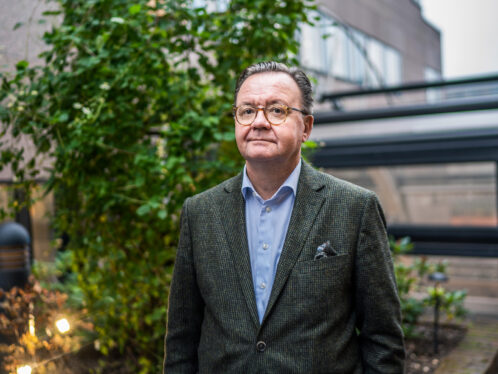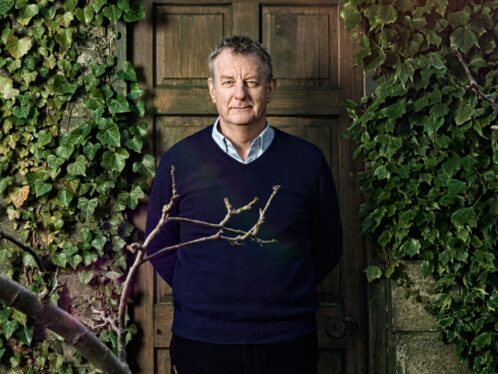The passionate queen of spin
Anne Gregory, director of Europe’s largest university institution for public relations, explains to Evolution what makes her local butcher a role model for any organization that strives for better communication.
Basic public relations is best conducted according to three simple rules: Be honest; provide accurate facts; and allow the public relations director access to top management.
These rules could be taken out of any contemporary how-to PR handbook, but in fact they are attributed to Ivy Ledbetter Lee, an American publicist who lived and worked a century ago and had a client list that included such legendary businessmen as oil magnate John D Rockefeller.
Since Lee’s time the world has changed from an industrial to an information-based society and seen countless revolutions in the technology of communication along the way. The practice of PR has retained some of its circus flair, however, with a hands-on attitude that is closer to plumbing than to the world of academia (although with a different dress code!).
But things are changing, and corporate communication expert Anne Gregory has played no small part in the transformation.
Gregory joined the world of corporate communication in the 1980s, following a stint as a journalist for BBC Radio. Twelve years later, she jumped ship to the academic world and founded the Public Relations Group at Leeds Metropolitan University, now the largest and one of the most influential centres for public relations studies in Europe.
Today, Gregory is one of the most sought-after and awarded scholars on the lecture circuit and author of a number of books and papers on PR and communication. And she has kept her passion for the field, which has been known to turn lesser souls into cynics.
“It’s a privilege to work with something that defines us as humans,” says Gregory, as she talks to Evolution about the field of communication as it is practised by businesses today.
How has the roleof communication in business changed over the past decades?
“It’s a change in the nature of organizations from a situation where shareholder value was absolutely king – and the duty of the company was primarily, principally and almost solely to its shareholder – towards a new stakeholder society. Organizations are now defined increasingly by communications, and everything they do communicates. The sort of buildings they have, the way people answer the phone, the way the customer service runs, the way complaints are handled, every single thing they do communicates, even the way their people talk and dress.
“I’ve got a beautifulquote from a CEO that I met a little while ago. He said, ‘I used to be challenged by financial analysts sitting in London, and I had three months’ notice of that challenge, because that’s when the accounting period comes to an end. Now I can be challenged by a spotty youth in his bedroom any time of the day, on any topic.’”
Most organizations are paying lip service to openness in communication, but to what extent do they walk the talk?
“Organizations are being forced to think about communication. Take BP for instance. [They face] massive accountability to a whole range of groups and individuals who have a stake and whose voices are heard and seen to be important, and they’re having to deal with that. That wasn’t the case before. The world has changed.”
How well has he BP performed in the oil spill disaster?
“In many ways BP is doing exactly the right thing. They’ve never complained about the money they have to spend, and they’re looking for technical solutions and are doing everything they possibly can. To me, the key to whether you’re good or not at communication is how well you understand the context. For example, is there a real understanding of the politics in the United States at the moment? This midterm election – that’s one dimension. Is there a real understanding of the culture of those small fishing communities that line the coast of the Gulf of Mexico? They didn’t seem to understand how these small communities work or to tap into their expertise. They should have gone down and said ‘You’re the guys who know this environment; we need your help’ and made sure they were involved in providing the solutions!”
Do you have any examples of very good PR and communicative strategies?
“My local butcher at home is the best communicator I know. He runs his own shop, he knows every customer by name, and as soon as you walk in you feel an immediate connection. He has never sold me a piece of meat that’s not been good. He’s always interested, always has time for a quick chat, and he lives by his values. He also has a CSR policy, which is that he asks for an extra 50 pence donation for charity in exchange for a pack of bones for your dog. He collects loads of money every year for charity that could have gone into his pocket. I think this a nice example of how things could be for corpor-ations. Live by your values, know and value your stakeholders, and do the right thing by society.”
You share a commonbackground in journalism with many PR professionals. How has the relationship between PR and journalism shifted over the past decades?
“I worry for journalism. The balance of power has shifted towards corporate communication, because that’s where all the resources are. Most of what goes into newspapers is just unchallenged press releases or copy that is written for them, and that is not the role of newspapers. I think the role of newspapers and journalists is to hold organizations to account, and they’re being starved of resources [to do that]. It worries me that journalists are just going to end up as aggregators. That can’t be right. PR people should campaign for good journalism and for a vibrant press; that’s essential for democracy.”
Is there an ethic in PR?
“I like to think so. That’s certainly what I teach, since an organization is being judged by its reputation and values. Unless there is a core of integrity, nobody will want to engage with you. It’s fundamentally wrong to try to mislead people, and that’s not what PR should be about.”




